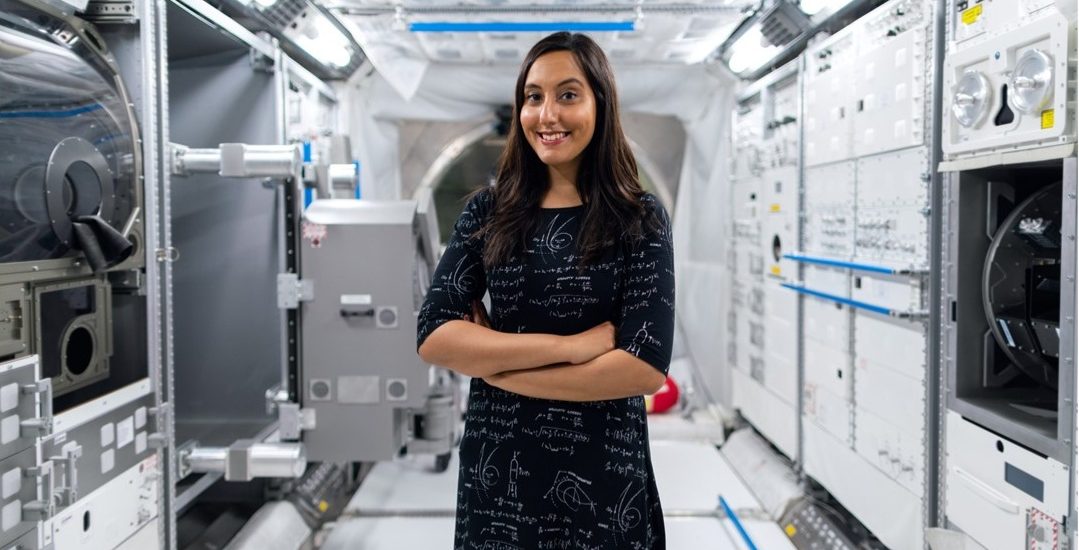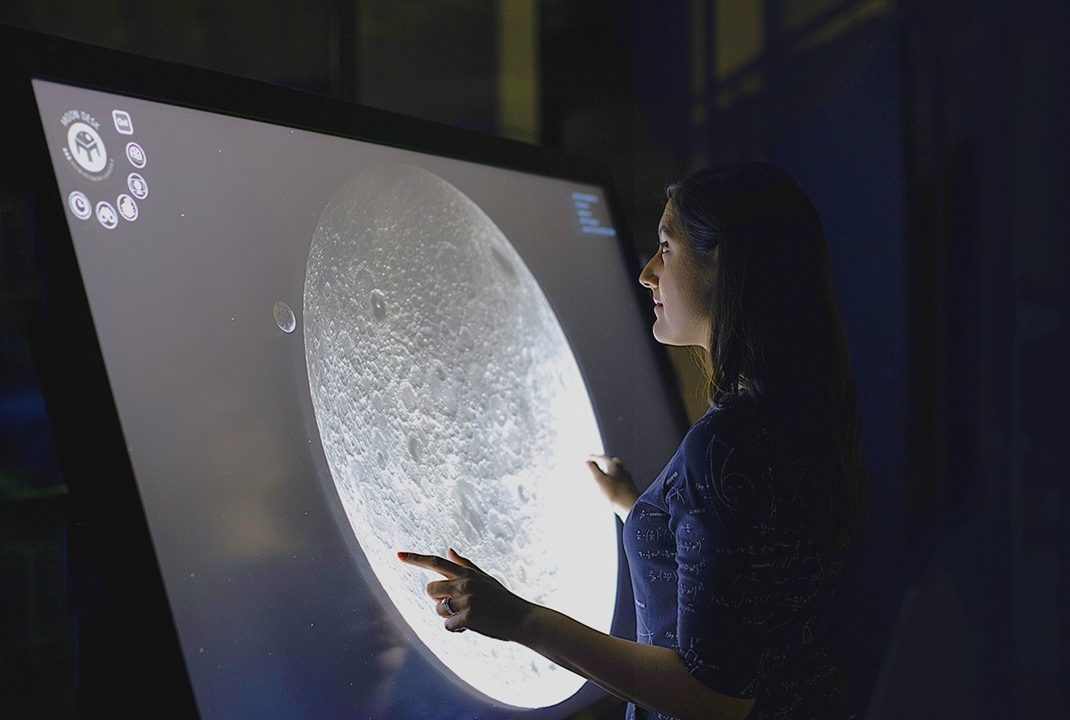“Our goal is to build a world of the future for everyone”
Vinita Marwaha Madill is the Founder of Rocket Women and a Project Manager at Mission Control Space Services, Canada.

Vinita Marwaha Madill (© This Is Engineering)
What is a typical day for you?
In the morning, I usually meet virtually with international colleagues to develop innovative space exploration and robotics projects, as well as colleagues closer to home to create exciting space outreach activities. Currently, for the rest of the day I then collaborate with colleagues in-person on the development of a user display that will allow an AI-enabled rover to be controlled on the Moon’s surface and receive novel scientific data. In the evenings and weekends, I devote my time to Rocket Women, a platform I founded to inspire the next generation of young women to choose a career in STEM.
But when I worked at the European Space Agency, it was quite different! As a contractor at the European Space Research and Technology Centre (ESTEC) in the Netherlands, my work focused on operations for future human spaceflight projects, including the European Robotic Arm (ERA) that was launched to the International Space Station (ISS) in 2021. ERA has supported astronauts and cosmonauts to carry out spacewalks and install new parts of the space station since then. I also helped to develop a smaller version of Texas’s Mission Control Centre at ESTEC, new spacesuits to keep astronauts healthy, guides for carrying out experiments on the ISS and crew instructor training for spacewalks, which was incredible.
What are some of the most interesting projects you have worked on?
Designing prototypes of the SkinSuit spacesuit whilst at ESA was amazing and seeing it being used on the ISS is the ultimate reward. In space, astronauts lose 2-3% of their bone mass during 6-month missions and grow 4-6 cm taller, which impacts their spinal health. The SkinSuit is worn inside the spacecraft and provides loading onto the astronaut’s body that essentially recreates the effect of gravity upon their skeleton. Each one is individually fitted to every astronaut, with a tailor taking over 150 measurements of their body to customize the suit.
Additionally, in my current role we are developing AI algorithms to classify the terrain of the Moon’s surface, essentially making lunar rovers smarter scientists, helping to reduce the workload of scientists on the ground through making decisions faster and with more confidence. This cutting-edge, semi-autonomous technology should be able to identify geological features on the Moon from camera images taken by a lunar rover and may even inform astronauts in real time on a spacewalk to select features of scientific interest to sample.
Designing prototypes of the SkinSuit spacesuit was amazing and seeing it being used on the International Space Station is the ultimate reward
Tell us more about Rocket Women.
Growing up and throughout my career, I didn’t see anyone that looked like me in the space industry and I believe that representation really matters to show it is possible to achieve your dreams. Our goal at Rocket Women is to envision, design and build a world of the future for everyone. We are doing this by empowering young women globally to consider a career in STEM and supporting them throughout this career journey, particularly as skills in science and engineering are set to be in demand over the coming years.
One of my favourite things about the space industry is truly how global it is in nature, with the opportunity to work in multiple countries and with an international mindset daily. You can also have an amazing impact on the world with a career in science and engineering! Space engineering involves real-time problem-solving skills, good communication, cross-cultural understanding, teamwork and creativity.
Therefore, we believe that the lack of gender and racial diversity in STEM industries, including the space sector, is not only an issue of inequality, but affects the engineering that we do and the systems we create. By better reflecting more of society, we can prevent unconscious biases from being implemented into design and applications. From developing new spacesuits to AI and novel facial recognition algorithms, we need to ensure that the creators and developers of these systems showcase the range of backgrounds, cultures and experiences of diverse users.
Through Rocket Women, both on our online platform and through our new podcast (releasing early 2026), we are sharing the stories of incredible, diverse women in science and engineering to inspire the next generation, alongside making a tangible difference to help send a young woman to the International Space University (ISU) through our scholarship program. We want to give every girl the chance to reach their potential and change the world through STEM.

Vinita looks at a Moon viewer (© This Is Engineering)
What advice would you give to someone hoping to work in your field?
It takes hard work and dedication to achieve your goals, but it is worth it. Knowing I wanted to work in the space industry, I learned about Students for the Exploration and Development of Space (SEDS), particularly the United Kingdom chapter UKSEDS. Through this I met space professionals for the first time, some of whom I went on to work with. Rather than space being a dream, suddenly it felt attainable.
I also completed the 9-week Space Studies Program at the International Space University, which is a life-changing experience that I highly recommend pursuing, with daily lectures given by astronauts and space industry experts. This, alongside focused internships and volunteering opportunities, helped me forge the path to where I am now. I think almost everyone I know working in the space industry and otherwise has felt like their future career was unknown at times, but pursuing your passion and persevering is important, whether you’re able to do that in your main job or even as a side hustle or volunteering role.
It is important to enjoy the subjects you study and the work you are doing, so pay attention to what your passion is for. Because as NASA Astronaut Zena Cardman (currently onboard the ISS) brilliantly said: “If you wake up curious and excited every morning, you’re going to be really happy, no matter what the end result is, whatever career you wind up in. Just pursue what interests you. I sit here in this blue flight suit, and I have to say it is possible. So you just have to go for it.”











